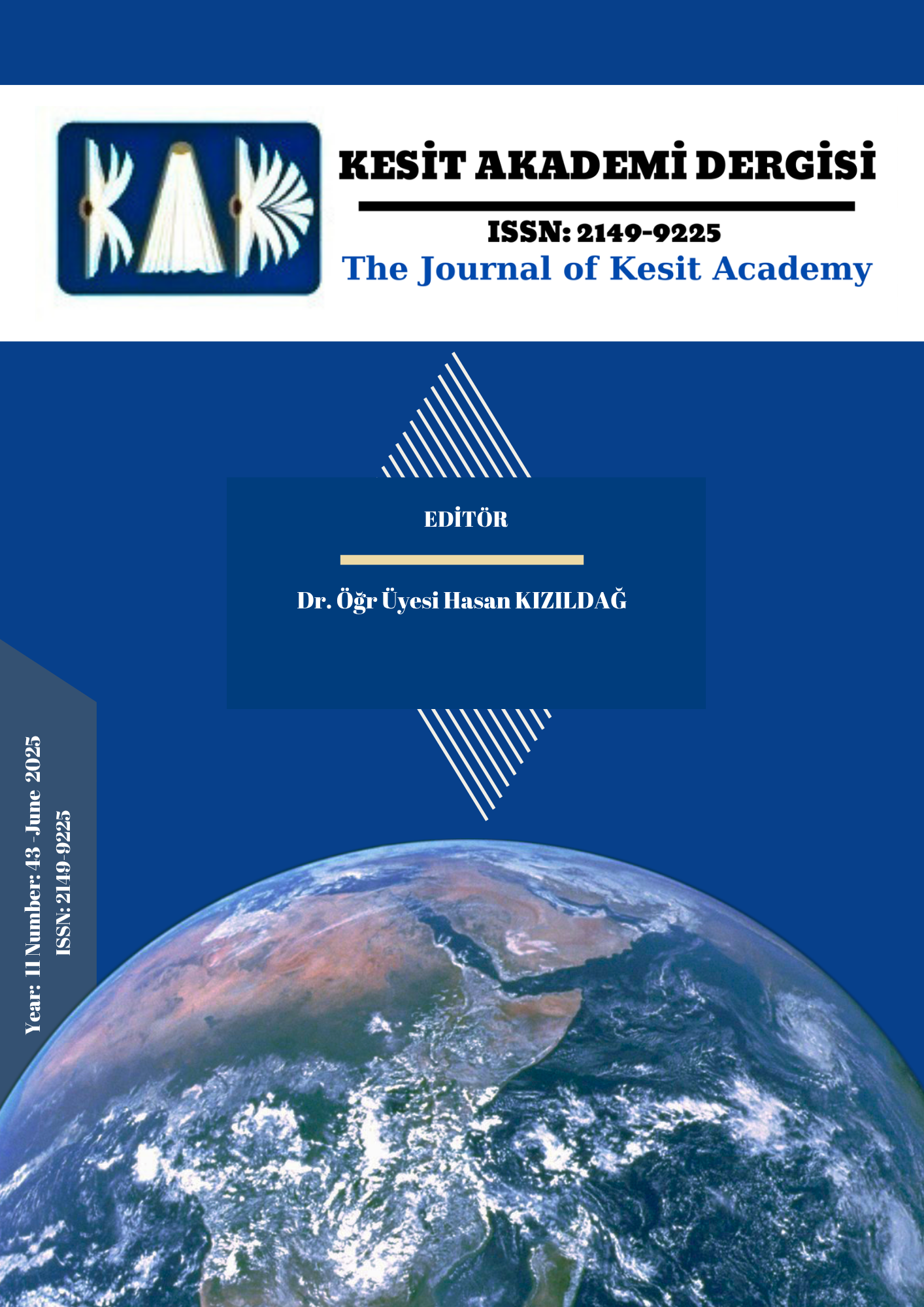Author :
Abstract
Geçmişin izlerini geleceğe aktarıp yaşatmak ve kalıcı hâle getirmek her medeniyetin öncelikli amaçlarından biridir. Bu amaçların gerçekleşmesindeki araçlardan biri de edebiyattır. Her toplum; dilini, kültürünü, hatta dinini sözlü ve yazılı ürünlerin kuşaktan kuşağa aktarımı sayesinde koruyup geliştirebilmiştir. Böylece edebiyat din, dil, tarih ve kültürel unsurların yeni nesillere ulaştırılmasında önemli bir vasıta işlevi görmüştür. Nitekim bu unsurlar; telmih, tenasüp, teşbih ve benzeri edebî sanatlarda yansımasını bulduğu gibi, iktibas sanatında da önemli ölçüde yerini almıştır. Buna göre ayet ve hadislerden çeşitli şekillerde yapılan alıntıyı ifade etmek üzere kavramsal boyut kazanan iktibas sanatının bu anlamda büyük bir öneme sahip olduğunu söylemek mümkündür. Bilhassa klasik Türk edebiyatında kullanılan iktibas, yalnızca bir alıntı yapmaktan öte, bir düşüncenin, bir duygunun ifadesi veya bir tema üzerinde daha derinlemesine düşünmeyi sağlayan bir araç olmuştur. Klasik şairler, iktibas yöntemiyle başta ayet ve hadisler olmak üzere, meşhur, güzel ve özlü sözleri de eserlerine dâhil ederek tarihsel ve kültürel mirası yaşatmışlardır. Bu alıntılar, okuyucuyu dinî-edebî metinlerle tanıştırırken, aynı zamanda şairin erdemini ve bilgi birikimini sergileyen birer işaret olarak görülmüştür. Dolayısıyla bu çalışmada klasik edebiyatın önemli şairlerinden biri olan Ahmed-i Dâî ve iktibas sanatı üzerinde durulmuştur. Ardından Dâî’nin yazdığı Bahariye Kasidesi iktibas sanatı bağlamında değerlendirilmiştir. Çalışmada içerik analizi yöntemi ve bilhassa beyitler açıklanırken de anlama dayalı şerh yöntemi uygulanmıştır. Bu çalışmayla hem Ahmed-i Dâî’nin şiirdeki maharet ve üslubunu daha yakından tanımak hem de bir kaside özelinde iktibas sanatına dikkat çekmek amaçlanmıştır. Böylece 15. yüzyılın ve klasik edebiyatın önemli isimlerinden biri olan şairin bahariye türündeki kasidesinde yoğun olarak yer verdiği iktibaslarla başta Kur’an-ı Kerim olmak üzere, dinle ilgili birçok ilme ve edebiyata son derece vakıf olduğu ve bu bilgisini güzel bir şekilde söz konusu şiirine yansıttığı sonucuna ulaşılmıştır.
Keywords
Abstract
Transferring the traces of the past to the future, keeping them alive and making them permanent is one of the primary goals of every civilization. One of the tools for the realization of these goals is literature. Every society has been able to preserve and develop its language, culture and even religion through the transmission of oral and written products from generation to generation. Thus, literature has served as an important means of transmitting religion, language, history and cultural elements to new generations. As a matter of fact, these elements are reflected in literary arts such as reference, balance, simile and similar literary arts, as well as in the art of quotation. Accordingly, it is possible to say that the art of quotation, which has gained a conceptual dimension to express the quotation of verses and hadiths in various ways, has a great importance in this sense. Especially in classical Turkish literature, the art of quotation is more than just a mere quotation; it has become a tool that enables a deeper reflection on a thought, an expression of an emotion or a theme. Classical poets kept the historical and cultural heritage alive by including famous, beautiful and pithy sayings, especially verses and hadiths, in their works through the method of quotation. These quotations, while introducing the reader to religious-literary texts, were also seen as a sign of the poet's virtue and knowledge. Therefore, this study focuses on Ahmed-i Dai, one of the important poets of classical literature, and the art of quotation. Then, Dâî's Bahariye qasida is evaluated in the context of the art of quotation. In the study, the content analysis method was applied and the meaning-based commentary method was applied especially when explaining the couplets. The aim of this study is both to get to know Ahmed al-Dai's skill and style in poetry more closely and to draw attention to the art of quotation in the context of an ode. Thus, it has been concluded that the poet, who is one of the important names of the 15th century and classical literature, is extremely knowledgeable in many religious sciences and literature, especially the Holy Qur’an, and reflects this knowledge in a beautiful way in his poem with the quotations he intensively includes in his qasida in the bahariye genre.





